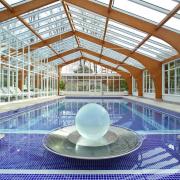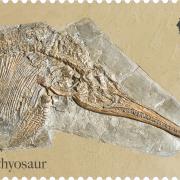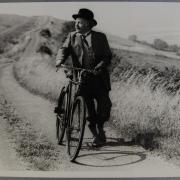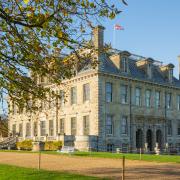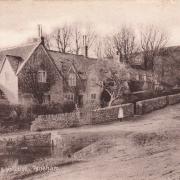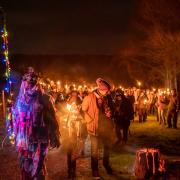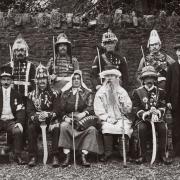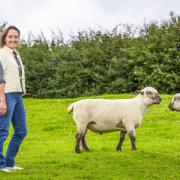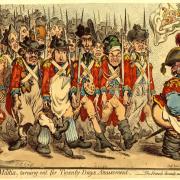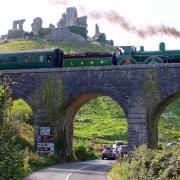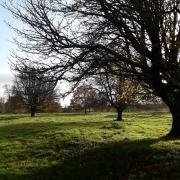Oral history helps to bring your family tree to life, so it is important to record these spoken memories before they disappear forever
Weddings, welcoming a new arrival, or saying farewell to a much-loved family member, is often when multiple generations come together and share family stories, but rarely do we record them. It is one of my deepest regrets that I didn’t make audio recordings of the family tales my grandparents told me. This made me reconsider the impact oral history can have on building a family tree. Voices and memories from relatives, especially the older generation, add real life experience to your family’s history. It also provides a first-hand audio description of a moment from their personal viewpoint. A witness to history in the making.

What is oral history? The Oral History Society describes oral history as ‘the recording of people’s memories, experiences and opinions.’ Its strength is that it reveals the daily lives of ordinary people and ordinary happenings, it brings our genealogy to life. As a historical record, oral history can also add individual perspectives to national and global events. However, memory can be subjective and fallible, so do some fact checking alongside the stories you are told.
The Oral History Society provide guidance on how you can use oral history within your family history. Their website (ohs.org.uk/for-family-historians) contains some great advice if you decide to record your own relatives' recollections. One helpful tip is to think about what you want to find out, ask open questions rather than questions which lead to a simple yes/no answer; descriptions in their own words about a person, place or topic - what someone wore or looked like, the sounds and smells of the street they grew up in or their workplace. Rather than focusing on uncovering new information, use the oral history to delve into feelings and purpose. What would it be like to step back in time to that place, or to meet that person?
It’s important to put family members at ease, the word ‘interview’ can seem somewhat daunting. Have an informal chat, emphasise that they don’t have to have accurate recall of dates, places, and names, it’s about capturing their unique story and voice, adding colour to the family record. The beauty of recording oral history is that all life experience is appreciated, every memory and recollection will add to the bigger picture. The Oral History Society offers advice on how to make a recording, then transcribing and summarising your interviews (ohs.org.uk/training).
Explore existing sound archives: Alongside recording your family’s oral history, you can also explore oral history collections that already exist. Although these probably won’t contain the voices of your ancestors, you may find out about the town or village where they lived, the schools they attended or job they did.
The British Library holds one of the world’s largest collections of oral history and life story interviews, covering British culture, work, life, and experience (bl.uk/collection-guides/oral-history). Within this oral treasure trove is the George Ewart Evans Collection of around 170 recordings (mainly from Scotland, Ireland, Wales and Suffolk), this includes recollections of working life in Ipswich unloading grain ships. George Ewart Evans, a pioneer in the oral history discipline, made these recordings between the mid-1950s and mid-1970s. He stated that: ‘The recordings document rural life and agricultural work in the late nineteenth and early twentieth century, folk beliefs about animals, medicine and witchcraft, folk and popular songs.’ He also shared some pertinent advice for the oral historian, declaring that: ‘the importance not of asking a lot of questions of your interviewee but of listening; the value of preparation but of not allowing this knowledge to intervene in an interview; the benefits of quickly establishing a rapport in a relaxed and unhurried manner; of avoiding audible interjections; the importance of following digression; and of making a high-quality audio recording so that accent and dialect might be heard.’ His maxim 'plenty of time and plenty of tape and few questions' is still relevant today for any oral historian (sounds.bl.uk/Oral-history/George-Ewart-Evans-collection).

My grandad used to tell me stories about when he was evacuated in the Second World War, so my next suggestion is for those who would like to know what life would have been like for evacuated relatives. The Evacuee Archive contains written memoirs and oral history interviews gathered by the Research Centre for Evacuee and War Child Studies at the University of Reading. The collection mainly relates to evacuation schemes within Britain as well as British children who were evacuated overseas to Canada, the USA, South Africa, and Australasia during the Second World War (merl.reading.ac.uk/collections/evacuee-archive).
You might also come across an oral history collection about an occupation that one of your ancestors held. The National Railway Museum is home to the National Archive of Railway Oral History, which contains over a thousand hours of stories gathered from people from all walks of life and around the country who worked on the railways (railwaymuseum.org.uk/research-and-archive/naroh)

Dorset Sound Archive: Dorset History Centre in Dorchester holds the Dorset Sound Archive. This contains hundreds of recordings reflecting many aspects of Dorset life from 1920’s school days to contemporary LGBTQ+ experiences.
It was from this collection that I heard George Coffen’s recollection of working in a clay pit mine (Clay pit mining at Norden, copyright of Dorset History Centre, reference DSA/244/3). George brings to life the experience of working underground from the age of 17: ‘When I started the only light, we had were candles. You only ever had two candles, one each side of the face […] you could see quite well […] and the poor runner he used to have his on the front of the truck.’ George gives a vivid description of working conditions: ‘with two spades going, you can imagine, same as a road drill going underground in a confined area, two of those going continually, very noisy.’
George’s voice adds colour, emotion and sensory information to his family history. His recollections could enhance your genealogy if your ancestors were Dorset clay miners. Dorset History Centre is a great place to deposit your own family recordings, and they offer training and support for recording projects (dorsetcouncil.gov.uk/libraries-history-culture/dorset-history-centre/get-involved/get-involved)
Poole Museum Oral History: Poole Museum also has a collection of local oral history. You can access snippets on Poole History Online, these range from wartime experiences to domestic life. For example, Eileen Armstrong describes her work as Launch Seawoman with the Imperial Airways flying boats in the Second World War (poolehistory.org.uk/node/18400). While Jack Spinney gives us a glimpse into household chores such as ironing in the early 1900s: ‘the irons that were used were heavy cast iron contraptions which had to be heated close to the burning coals’ (poolehistory.org.uk/node/18390).

Share your stories: Poole Museum is asking local people to help create a new oral history archive; this is part of the National Heritage Lottery Fund project - Our Museum - which will redevelop Poole Museum’s maritime galleries. Do you have a story about working in the harbour, on the boats, or the oil field? Could you share experiences of a day at the seaside in Poole? Your memories don’t have to be about big historic moments.The museum is interested in the everyday stories which show how the harbour has been at the heart of the community, with stories drawn from all communities.

A number of contemporary recordings have already been captured including Linda Barter’s memories about growing-up in old Poole in the 1950s where her family were fishermen. Linda vividly evokes the skill of mackerel spinning ‘there were little silver spinners and sometimes, in the olden days they had fluorescent feathers, and so they would sparkle in the water when they spun and they would attract the fish...and we’d take them home and gran would cook them, she would souse the mackerel.’
Another new recording is from Dr Holly Phillips MBE, the RNLI’s principal naval architect, who describes the ‘real team spirit’ of the organisation. She also recalls when she was crew on the Poole Lifeboat: ‘I was the first woman to join here […] and I was the 100th overall in the RNLI and that was in the ‘90s.’
Oral histories can also bring life to museum objects and interpretation. They give a voice to a wide variety of people and broaden the scope of displays. So, if you have a story about Poole and the sea to share, do get in touch localhistory@bcpcouncil.gov.uk.
I hope this article has inspired you to talk to your relatives and record their recollections, or to explore the wealth of interviews available in oral history collections. You might even decide to record your own story and memories and share them.
Katie Heaton is a Local History Librarian at Poole Museum poolemuseum.org.uk




